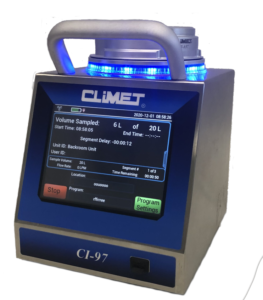Viable Air Sampling
Environmental monitoring is the continuous measurement and analysis of environmental parameters in order to understand the impact of human activities on the environment. Here are some best practices for conducting viable air sampling, which is a type of air sampling that involves collecting and analyzing samples for the presence of living microorganisms:
- Determine the sampling objectives: Clearly define the purpose of the viable air sampling, including the specific microorganisms you are trying to detect and the intended use of the data.
- Select the appropriate sampling method: Choose the sampling method based on the microorganisms you are trying to detect and the type of air sampling equipment you have available. Some common methods include:
- Active sampling: This involves using a device to pump air through a filter or onto a solid growth medium.
- Passive sampling: This involves using a device that relies on natural air movement to collect a sample.
- Select the appropriate sampling location: Choose a location that represents the area you are interested in sampling. Consider factors such as the distance from sources of contamination and the flow of air through the area.
- Calibrate the sampling equipment: Ensure that the sampling equipment is properly calibrated before starting the sampling process. This helps to ensure accurate and reliable results.
- Follow proper sampling procedures: Follow the manufacturer’s instructions for operating the sampling equipment and handling the collected samples.
- Properly label and store the samples: Properly label the samples with relevant information such as the sampling location, date, and time. Store the samples according to the manufacturer’s instructions to ensure the integrity of the samples.
- Analyze the samples: Send the collected samples to a laboratory for analysis according to the manufacturer’s instructions. Make sure to follow proper quality control procedures during the analysis process to ensure reliable results.




